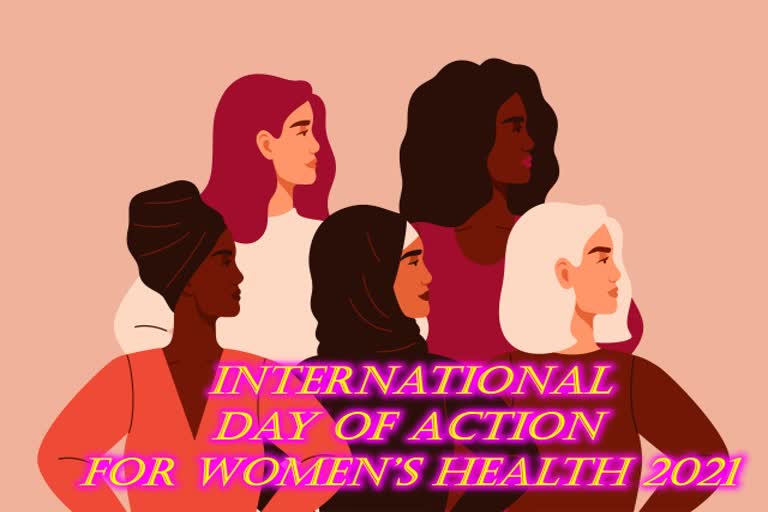For the first time in 1987, during the International Women’s Health Meeting in Costa Rica, it was proposed to observe May 28th as the International Day of Action for Women’s Health. Since then, it has been celebrated every year on the same date, globally. The main objective of the day is to spread awareness and stand for women’s health, with the main focus on their Sexual and Reproductive Health and Rights (SRHR). The theme for 2021 is, "Women's Health Matters: Ending the Inequality Pandemic and Ensuring SRHR remains essential!"
What Is SRHR?
Sexual and Reproductive Health and Rights (SRHR) refer to the fundamental human rights that are basic to both men and women all across the world and should be respected and protected at all cost. SRHR includes the following rights:
Right to:
- Receive information on sexuality
- Sexuality education
- Choose their partner
- Take the decision to be sexually active or not
- Decide when to have children
- Use modern contraceptive methods
- Access to maternity care
- Safe abortion and post-abortion care
- Know about Prevention, care, and treatment of sexually transmitted diseases and infection
Pandemic And Women’s Health
Currently, in the times of the COVID-19 pandemic, which has lasted for more than a year in our country, many women have faced numerous problems, pertaining to their health and sexual rights. Many cases were reported where women faced domestic violence, were sexually assaulted and raped while the country was under lockdown. And not just physically, they have been affected mentally too.
The official website of the day states, “The pandemic has exposed and exacerbated long-standing social and gender inequalities that are manifested in many forms across contexts and are operating at different, intersecting levels and infringes upon women’s rights, among them, women’s rights to life, health, bodily autonomy, equality, and non-discrimination, and freedom from violence.”
Women’s Health In India
Women have faced heavy discrimination for a long time in India. Although with the modernization in our country, women now strongly speak up, stand equally, and fight for their rights. However, there are still certain marginalized communities, where women are deprived and are still discriminated against because of their gender.
Also Read:World Menstrual Hygiene Day 2021#MHDay
The most common issues faced by women in India, as stated by the National Health Portal (NHP) of India are:
- Malnutrition
India has one of the highest rates of malnourished women among developing countries. A 2012 study by Tarozzi found the nutritional intake of early adolescents to be approximately equal. Maternal malnutrition has been associated with an increased risk of maternal mortality and also childbirth defects. Addressing the issues of malnutrition would have beneficial outcomes for women and children. - Lack of maternal health
Poor maternal health not only affects a child’s health in adverse ways but also decreases a woman’s ability to participate in economic activities. Although India has witnessed dramatic growth over the last two decades, maternal mortality still remains high as in comparison to many developing nations. India contributed to nearly 20 percent of all maternal deaths worldwide between 1992 and 2006. However, those states where there are higher literacy and growth rates, tend to have greater maternal health and also lower infant mortality. - Suicide
Suicide is a major problem in India. The suicide rate in India is five times higher than that of the developed world. Furthermore, the rate of suicide has been found to be higher in women as compared to men in India.
The most common reasons for women's suicide is directly related to:
- Depression
- Anxiety
- Gender discrimination
- Domestic violence
The suicide rate is particularly high among female sex workers in India, who face numerous forms of discrimination for their gender and line of work.
Domestic Violence
Domestic violence is a major issue in India. Domestic violence is defined as acts of physical, psychological, and sexual violence against women is found across the world and are currently viewed as a hidden epidemic by the World Health Organization. As per reports of India National Family Health Survey III (2005-2006), 31 percent of all women reported having been the victims of physical violence in the last 12 months. However, the actual number of victims may be much higher.
Therefore, women in India have been facing a lot of things that have affected them physically, mentally, and emotionally. Not just at home, but at the workplace too, women can be seen to be the victims. Thus, standing together for women’s rights is extremely important.
Besides this, women must be made aware of the medical tests they should take as they age, to avoid the risk of certain female-specific diseases or health conditions. The tests may include a breast examination, pelvic examination, eye, blood pressure, and cholesterol checkups from time to time. They should also keep an update on immunizations. All these will help in maintaining proper health and in keeping her mentally fit.
